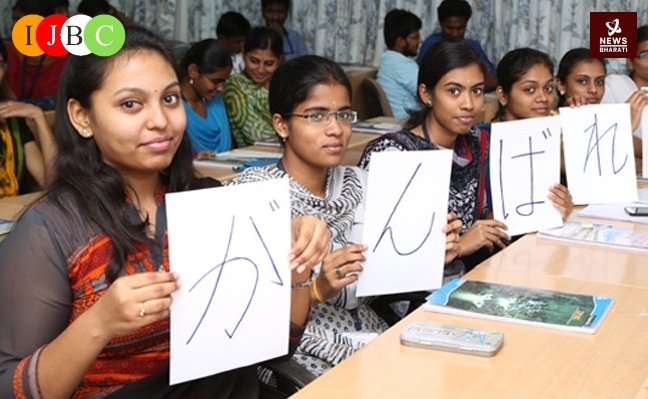The Imperative of Indo-Japanese Academic Collaborations
09 Oct 2023 15:10:35
In an increasingly connected world, alliances between countries in the realms of education and research have become indispensable. One such collaboration that holds promise is the partnership between India and Japan. These two Asian giants have recognized the mutual benefits of nurturing stronger connections in academia and research. This article delves into the importance and necessity of academic cooperation between Indian and Japanese institutions, shedding light on the countless advantages it offers to both nations.

Historical Roots
The academic association between India and Japan has a fascinating history, dating back to the 6th century when Buddhism voyaged from India to Japan, profoundly influencing Japanese culture, philosophy, and education. In contemporary times, diplomatic relations between these two countries have evolved into comprehensive partnerships, extending their embrace to various sectors, including education.
Elevating Educational Quality
1. Knowledge Sharing: Collaborative ventures enable Indian and Japanese institutions to pool their intellectual resources. This sharing of knowledge and expertise enhances the quality of education and research on both sides. Indian institutions can benefit from Japan's advanced technology and innovation, while Japanese institutions gain insights into India's rich and diverse academic landscape.
2. Cultural Exchange: Academic partnerships promote cultural understanding and appreciation. Indian and Japanese students participating in exchange programs get a deeper insight into each other's cultures, languages, and traditions. This cultural exchange not only enriches their personal experiences but also equips them to be global citizens.
Boosting Research and Innovation
1. Capitalizing on Complementary Strengths: India and Japan possess complementary strengths in various fields such as technology, engineering, healthcare, and renewable energy. Collaborative research projects tap into these strengths to address global challenges. For instance, joint efforts in renewable energy research can contribute to tackling climate change and energy security concerns.
2. Access to Resources: State-of-the-art research facilities and funding opportunities are pivotal for scientific breakthroughs. Collaborative research initiatives grant Indian and Japanese scientists access to each other's resources, facilitating groundbreaking discoveries and innovations.
Economic Rewards
1. Economic Advancement: Collaborative research often leads to the commercialization of new technologies and products. These innovations foster economic growth in both countries, generating employment and enhancing global competitiveness.
2. Nurturing Start-up Ecosystems: India and Japan both boast vibrant start-up ecosystems. Collaborations between these start-ups, driven by academic partnerships, can expedite technological advancements and promote entrepreneurial spirit.
Global Impact
1. International Recognition: Collaborative research and academic alliances elevate the global standing of Indian and Japanese institutions. Their combined contributions to addressing global issues enhance their reputation, attracting talent and investment from around the world.
2. Diplomacy Through Soft Power: Education and research partnerships serve as a form of soft power diplomacy. Strengthening academic ties fosters goodwill between nations and constructs bridges that extend beyond academia into other realms such as trade and politics.
Challenges and the Path Ahead
While the benefits of academic partnerships between India and Japan are clear, challenges like language barriers, administrative complexities, and differences in academic systems persist. However, proactive measures, including language training programs, simplified administrative processes, and heightened cultural sensitivity, can address these hurdles.
To fortify their academic collaboration, India and Japan can consider:
1. Diversifying Collaboration Fields: Expanding collaboration into diverse fields, including social sciences, humanities, and the arts, can yield holistic benefits and nurture a comprehensive partnership.
2. Increased Government Backing: Governments of both countries can offer financial incentives and support for academic exchanges and collaborative research projects.
3. Industry Involvement: Encouraging active participation from industries in collaborative research can lead to practical and market-oriented solutions.
Academic partnerships, student exchanges, and research collaborations between India and Japan are instrumental in fostering deeper understanding, addressing global challenges, and promoting economic growth. By acknowledging the significance and necessity of these collaborations, both nations can harness the power of education and research to build a stronger, more prosperous future for their people and make noteworthy contributions to the global community. The enduring connection between these two nations, rooted in history, is poised to flourish in the modern world through continued cooperation in academia and beyond.
IJBC will host the 2nd India-Japan Education Conference on 24th November in Pune. This event aims to offer a platform for students, academicians, researchers, and policymakers to collaborate and discuss various opportunities, issues, and solutions in the education sector. Additionally, it aims to foster university ties, facilitate student exchange programs, and promote research and development endeavors.
Pre-register here -
About Indo-Japan Business Council
Indo-Japan Business Council (IJBC), established in 2011, is the apex bi-lateral Chamber synergizing India-Japan engagement in business, trade, commerce, education, and culture. IJBC is continually working to enhance India-Japan Business and Economic Engagement. Today IJBC has a pan India presence.